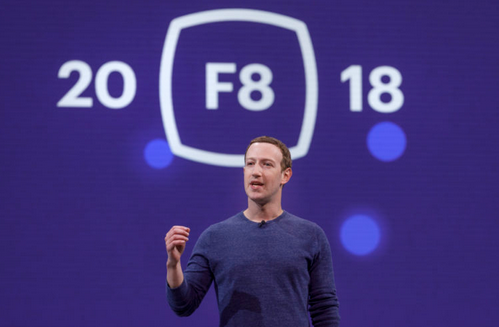Facebook’s failures could lead to ‘the fall of digital advertising’
One Facebook scandal after another has dented trust in not only the vanity metrics of campaigns on the social network, but also in digital advertising itself, argues Michael Spencer.
Facebook’s most recent lawsuit to do with inflated video metrics goes to the bone of the immorality of digital advertising today, which is mostly ruled by Facebook and Google.
In fact, Facebook is facing legal action from a small group of advertisers who claim the tech giant knew for more than a year that there were problems with the way it measured viewership of video ads – which, by the way, there have been rumours around of for years.
This is how it looks:
- In September 2016, Facebook admitted inflating its average video viewing figures by only counting views that lasted longer than three seconds.
- The skewed metrics did not relate to paid advertisements, but they could have misled brands into thinking that Facebook was a livelier video platform than it actually was.
- The inflated video views led both advertisers and media companies to bet too much on Facebook video – which, if you haven’t, noticed never amounted to anything much (if you compare it to YouTube, for instance).
Facebook’s business model heavily relies on ads, as the majority of social network’s revenue comes from advertising. In 2017, about 98 percent of Facebook’s global revenue was generated from advertising.
It appears the social network allegedly thought it had to mislead to inflate the value of its stocks.
From a macro level, it really points to the dishonesty I think entwined with the world of advertising. While brands have often used Facebook for its targeting, the way it displayed warped metrics may have led brands to believe they were getting more return-on-investment from it than they really were.
The lawsuit alleges that Facebook has been cooking the books and not disclosing this miscalculation.
So what if it was all a lie? Facebook might have abused its position as a traffic hoarder (just as that same traffic now is going, among younger consumers, to YouTube).
The bottom line is Facebook knew about problems in how it measured viewership of video ads on its platform for more than a year before it disclosed them in 2016. Instead of being honest, it hid these things seemingly out of fear it would diminish profits and its reputation.
Well, guess what? The demise of trust in Facebook just continues all through 2018. We have to consider that this might be the fall of digital advertising as we know it. Before you can learn how to regulate artificial intelligence, you need to regulate algorithms for the good of humanity – and primarily this means regulating advertising.
What if advertising is a legacy industry that has no place in the future of a better internet? We entrusted Facebook to weed out misinformation, security breaches and data harvesting. Little did we realise Facebook’s ad-revenue appears to have systematically been based on manipulative deception of vanity metrics.
Michael Spencer is a marketing consultant based in Montreal, Canada. A version of this article first appeared here.






Very interesting….great article and on the money I think
User ID not verified.
I didn’t know Mark Ritson was writing articles under a pseudonym and false profile pic.
User ID not verified.
Bring it on!
User ID not verified.
Utterly wrong.
Facebook will take a hit and be back to business as usual in a year.
User ID not verified.
The fall of Facebook advertising: unlikely but I guess it’s possible on their currently trajectory
The fall of Facebook-network advertising: Not in the next 5-10 years, if ever.
The fall of digital advertising: yeah, nah.
User ID not verified.
Everyone who paid attention to their social media metrics knew this was the case. Historically when you’ve exported your video metrics, it gave you the total viewership for greater than 3 seconds, and for 95% completion of video watch. Facebook certainly didn’t make it obvious but the only marketers who it was deceptive towards were the ones who didn’t bother to do their homework.
User ID not verified.
Would say they’ll take their kick to the groin, adjust their underpants and continue on toward a half trillion market cap a little wiser and more cautious. They’ve had a shambles of year but to frank, they’ve lost no audience. Seriously, none at all. As an advertiser, as long as audiences’ time is monopolized by the duopoly it’s remiss of me not to align budgets accordingly. If you’re a good advertiser you call out the bullshit for what it is, take joy in saying it to their face but don’t look at at reporting metrics, digital or otherwise, as absolutes.
User ID not verified.
Michael Spencer, brave of you to put your name to an article so embarrassingly off-base. This is completely unrealistic and paints with a brush so broad that it’s more of an industrial broom.
I shudder to think the conclusions you’ll make when you find out how inaccurate offline measurement is.
User ID not verified.
What the author choses to ignore is that the vast majority of digital advertising is in the pursuit of highly measurable performance metrics by some very sophisticated DR advertisers. From app installs to e-commerce website conversions. The worlds largest travel aggregator was recently reported as spending over $1b in one quarter on Google advertising alone. It does those marketers and their advisers and agencies a huge dis-service to suggest that a FB video metric reporting error from 2 years ago has somehow pulled the wool over the eyes of the entire industry, and continues to do so.
User ID not verified.
DR, given their campaign reach claims that exceed 100% … the wool is still in abundance.
User ID not verified.
Ummm…
I know FB doesn’t really make it easy to get your hands on honest numbers so it can be hard to know what’s really going on (especially in the AU market), but just because FB continues to grow in the developing world (it’s been at saturation in AU for years), we do know that, from an advertiser’s point of view, audiences and time spent *have* declined:
– Facebook removed 2.8 billion accounts in the last 12 months (because they were fake) – refer endgaget article from today
– This is in the context of an active monthly user base of 2.3 billion users in Q3 2018 – refer Statistica
– Zuckerberg admitted in January this year that time spent on FB had declined by 5% in aggregate Q4/Q3 2017 (or 24% per person according to Pivotal analysis)
– Q2 saw audience declines in Canada and the US
So, there are fake numbers, fake accounts, AND declining opportunities to see
User ID not verified.
Hey mate, it’s me, Nielsen Measurement. Notice you forgot to include me! That’s a shame too, because I am a third party verification on Australian userbase for both Facebook (and Instagram) and I show no declines in unique monthly users.
Would be swell if you’d make sure to include me next time – even though I don’t support your narrative!
User ID not verified.
I like an internet comment thread where everyone goes off to google all the answers that agree with them. It’s tough to not be familiar with the bot issue, but what’s missed is most bots have an exceedingly short life span, typically disabled just after registration – our agency has IAS tracking, and our bot fraud is 0.3%. Annoying? Yes. Do I accept a small amount of wastage as the cost of doing business with any medium ever?
Time spent declining, they’ve been quite public with that as they used it as basis to drag down the visibility of media partners vs “friends” in feed, but as my mate Nielsen knows, Australian users still average 15 soulless hours on Facebook each month. I know Snapchat isn’t eating their lunch.
I don’t LOVE Facebook, I feel handcuffed because as you point it’s saturated in AU. Damn them, but my audience is there.
But, returning to the articles thesis: will their dramas bring about “the fall of digital advertising”? Nah.
User ID not verified.
Oh I haven’t forgotten you Nielsen Measurement. Remember that 18 months you overestimated FB video steams by 94%? And when you finally addressed the issue (more than eight months after my company queried the figures with you) streams dropped from just under 10 billion per month to around 550 million? And your independent measurement today, if I’m not mistaken, relies on FB provided figures doesn’t it? Yeah, I’m familiar with your data too and I was surprised that your stats guys didn’t think something was amiss when reported streams doubled from October to November 2015, and then trebled in December.
But that’s all beside the point. Declines are being observed. All you need to do is pay attention or, as the commentator below notes, google it.
User ID not verified.
Correction: 12 months
User ID not verified.
I’m glad the article is only his “opinion” and more concerning it is coming from a marketing consultant. The author needs a rubber band on the wrist and snap it hard a number of times before writing another “opinion”.
Setting aside the issues with technologies, part of the problem in our industry are “consultants” and “experts” that are happy to evangelise their thoughts and opinions. Bleh and meh.
I would love to hear if the author have experienced himself the issues he quoted, how it affected his work and his customers, then garner others’ feedback to validate the “opinion” rather than regurgitating what the media is already talking about and present it like it’s a prophecy. #youarenotjesus
User ID not verified.